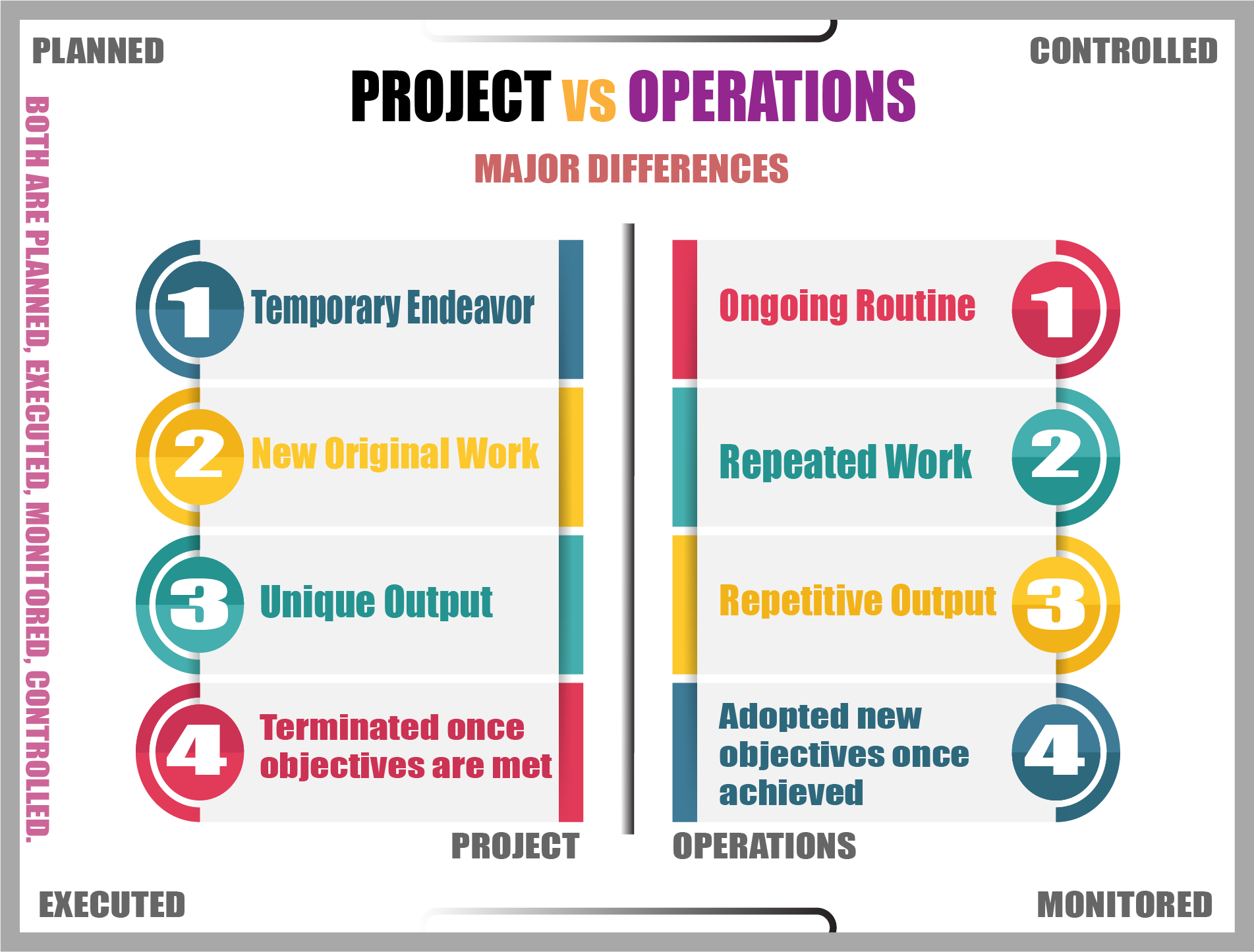 Lots of people confuse projects and operations and oftentimes they consider operations to be an ongoing project.
Lots of people confuse projects and operations and oftentimes they consider operations to be an ongoing project.
But there's no such thing as an ongoing project.
I've had to explain this multiple times and if you work in project management, you'll have to do this a lot too so that you can set expectations on where your work starts and ends.
The handover between the project and operations needs to be clarified even before you start with your project so that it's clear who's going to take over and when.
But let's take a look at the differences between projects and operations so you get a better idea of what I'm talking about.
What's a Project?
I'm a certified Project Management Professional by the PMI and their PMBOK guide defines projects as "a temporary endeavour undertaken to create a unique product, service, or result."
Projects are:
- temporary - they have a definitive beginning and end
- unique - they are a new undertaking, unexplored ground
Projects are characterised by:
- a new product, service or process that hasn't existed before to create new value
- one objective to be achieved and once that's done, the project is terminated
- systems having to be created
- performance, cost and time are uncertain
- upsetting the status quo and violate the established practice
- having more risks as they are usually done for the first time
Projects are undertaken to address an opportunity or a business need, a social need, technological advancements, customer requests, market demand or legal requirements.
What are Operations?
Operations are the ongoing execution of activities and they follow organisational procedures to produce the same result or a repetitive service that will help sustain the business. Operations are typically permanent in nature and they include all of the normal business functions.
Operations are:
- repetitive - they have expected inputs and outputs every time
- ongoing - they have a continuous cycle of execution
Operations are characterised by:
- repeat process, product or service to sustain the business
- multiple objectives to be achieved again and again
- systems already created and in use
- performance, cost and time are known
- supporting the status quo and sticks to the established practice, such as making sure you anonymize data of customers and clients
- having fewer risks as they are repeated many times.
In essence, operations do not produce new things, but they are necessary to maintain and sustain the system. Operations are also used to run regular business models, achieve the goals of the business and support the business on a daily basis.
Similarities between Projects and Operations
Of course, there are certain similarities between projects and operations, specifically:
- Both are performed by people.
- Both are planned, executed and controlled.
- Both have resource limitations.
What Happens in Organisations
In organisations, projects are managed through project management and operations require business process management so it'll typically be different teams working on those.
Of course, for smaller companies or companies that don't have well-established project management practices or a PMO (project management office), then the same person might be doing both projects and operations.
I also had a similar role in my previous organisation where I had to set boundaries between the two and manage my time to ensure I can both deliver unique new value through projects but also keep the business running with the operations I had built after the delivery of a successful project.
And if I'm honest, projects are more fun - they are unique, they are new and as such, they enable you to learn new things so if I have to choose between operations and projects, I'd also go for projects, even though I'm pretty effective and well-organised which are key for operations.
In summary, here's a great infographic for a quick overview of the differences between projects and operations.
Differences Between Projects and Operations [Infographic]

What are you more involved in? Projects or operations?







